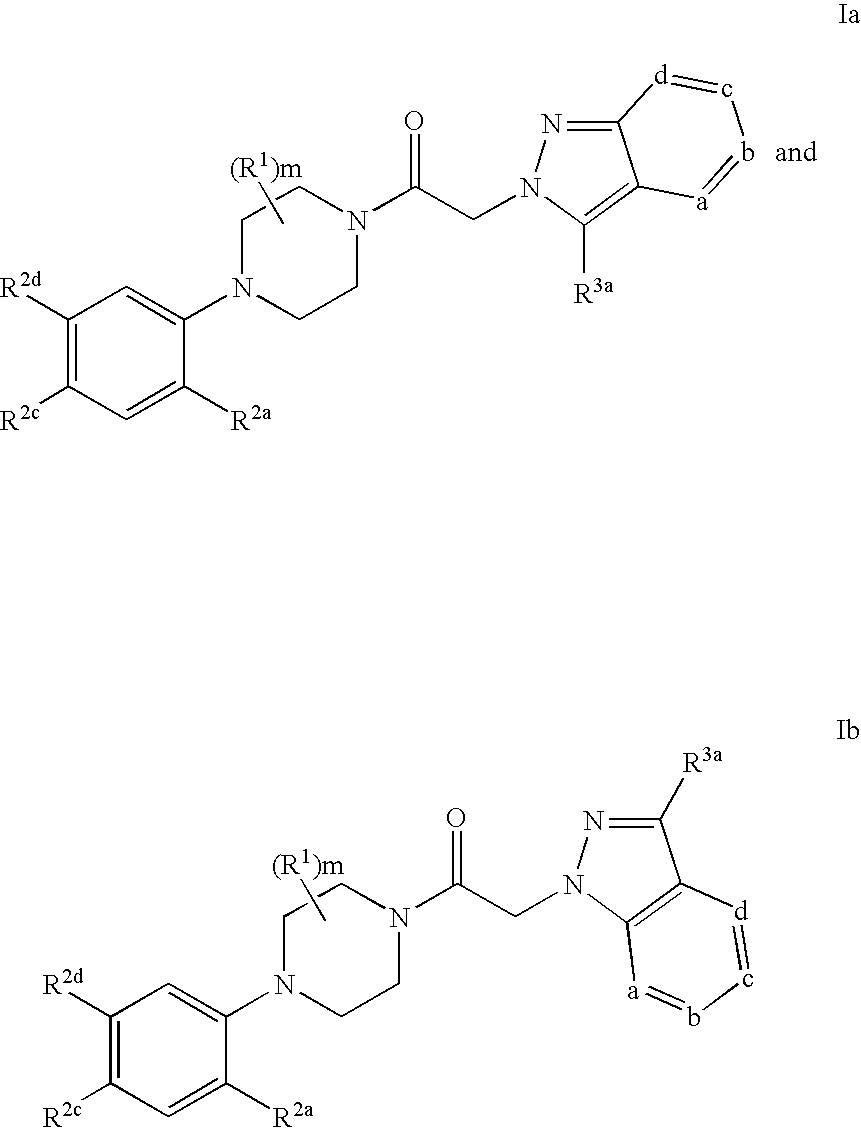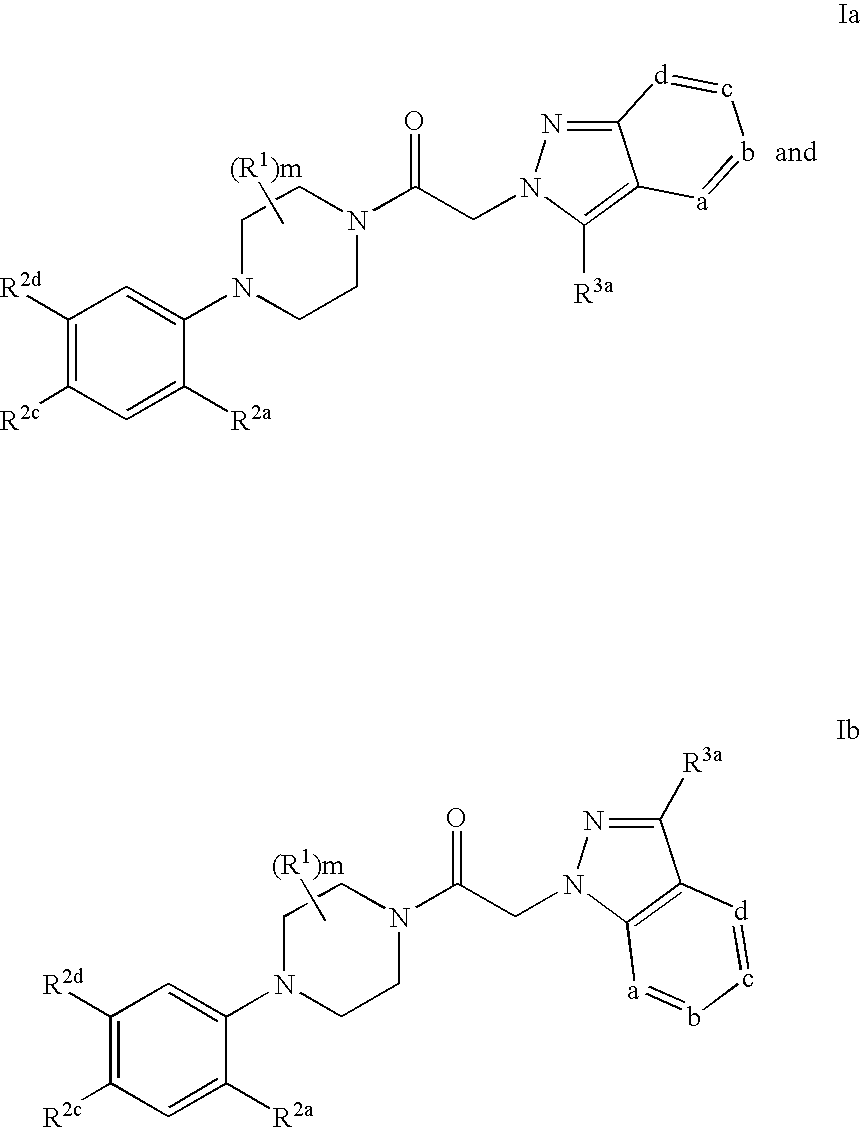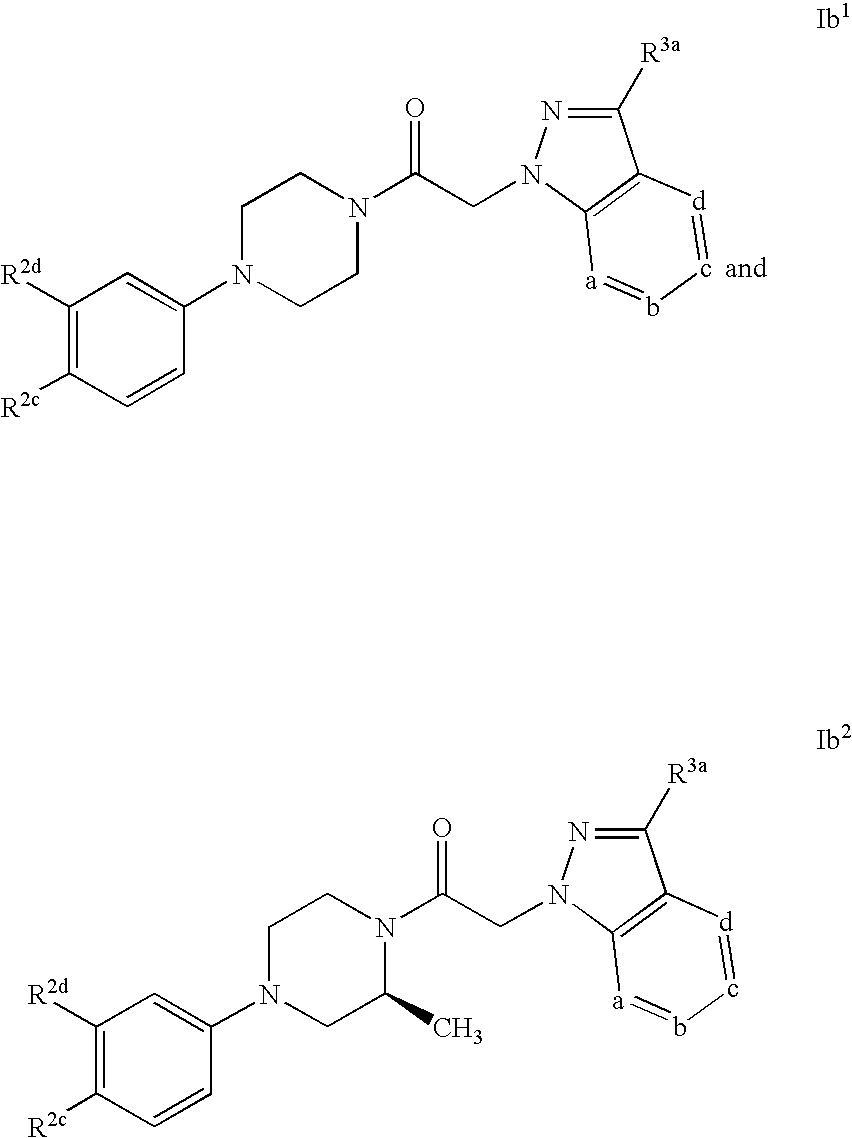Azaindazole compounds and methods of use
a technology of azaindazole and compounds, applied in the field of azaindazole compounds and methods of use, can solve the problems of inability to meet the needs of patients, short half-lives once administered, and high cost of development and manufactur
- Summary
- Abstract
- Description
- Claims
- Application Information
AI Technical Summary
Benefits of technology
Problems solved by technology
Method used
Image
Examples
example 1
Synthesis of 1H-pyrazolo[3,4-b]pyridine
[0226]
[0227] 2-Chloro-3-formylpyridine (15.02 g, 106 mmol, 1 equiv), hydrazine (10 mL, excess), and dioxane (90 mL) were combined in a sealed tube and heated at 150° C. for 16 hr. After cooling to room temperature, the solvent was evaporated in vacuo to provide a crude residue which was diluted with dichloromethane (600 mL). The organic solution was washed with water (50 mL), brine (50 mL) and dried over anhydrous sodium sulfate. The solvent was removed in vacuo to provide 1H-pyrazolo[3,4-b]pyridine as a yellow powder which was used without further purification: LCMS (ES) M+H 120.3, Rf 0.20 min (Agilent Zorbax SB-C18, 2.1×50 mm, 5μ, 35° C., 1 ml / min flow rate, a 2.5 min gradient of 20% to 100% B with a 1.1 min wash at 100% B; A=0.1% formic acid / 5% acetonitrile / 94.9% water, B=0.1% formic acid / 5% water / 94.9% acetonitrile).
example 2
Synthesis of 3-Thiazol-2-yl-1H-pyrazolo[3,4-b]pyridine
[0228]
[0229] To a suspension of 2-chloro-3-[(2-thiazolyl)carbonyl]pyridine (257.5 mg, 1.2 mmol, 1 equiv) in dioxane (3 mL) in a sealed tube was added hydrazine (2 mL). The mixture was heated at 150° C. overnight, cooled to room temperature and concentrated in vacuo to provide a crude residue. The resultant residue was diluted with dichloromethane (300 mL), washed with water (50 mL) and brine (50 mL). The organic layer was separated, dried over sodium sulfate, filtered and concentrated in vacuo to provide 3-thiazol-2-yl-1H-pyrazolo[3,4-b]pyridine (212.3 mg) as a yellow powder which used without further purification: LCMS (ES) M+H 203.5, Rf 2.68 min (Agilent Zorbax SB-C18, 2.1×50 mm, 5μ, 35° C., 1 ml / min flow rate, a 2.5 min gradient of 20% to 100% B with a 1.1 min wash at 100% B; A=0.1% formic acid / 5% acetonitrile / 94.9% water, B=0.1% formic acid / 5% water / 94.9% acetonitrile).
example 3
Synthesis of 1H-Pyrazolo[3,4-b]pyridin-3-ylamine
[0230]
[0231] 2-Chloro-3-cyanopyridine (2.77 g), hydrazine (5 mL), and dioxane (100 mL) were combined in a sealed tube and heated at 150° C. for 16 hr. The reaction mixture was cooled to room temperature and concentrated in vacuo to provide a crude residue. The resultant residue was dissolved in ethyl acetate (100 mL) and washed with saturated NaCl solution (50 mL). The organic layer was dried over sodium sulfate, filtered, and concentrated in vacuo to afford 1H-pyrazolo[3,4-b]pyridin-3-ylamine as a yellow solid which was used without further purification.
PUM
| Property | Measurement | Unit |
|---|---|---|
| Composition | aaaaa | aaaaa |
| Structure | aaaaa | aaaaa |
| Pharmaceutically acceptable | aaaaa | aaaaa |
Abstract
Description
Claims
Application Information
 Login to View More
Login to View More - R&D
- Intellectual Property
- Life Sciences
- Materials
- Tech Scout
- Unparalleled Data Quality
- Higher Quality Content
- 60% Fewer Hallucinations
Browse by: Latest US Patents, China's latest patents, Technical Efficacy Thesaurus, Application Domain, Technology Topic, Popular Technical Reports.
© 2025 PatSnap. All rights reserved.Legal|Privacy policy|Modern Slavery Act Transparency Statement|Sitemap|About US| Contact US: help@patsnap.com



